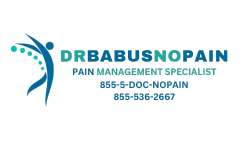Overview of Neck Pain
Neck pain is a common discomfort characterized by pain or discomfort in the cervical spine, which encompasses the seven vertebrae that make up the neck. It can result from various factors, including muscle strain, poor posture, injuries, degenerative conditions, or underlying health issues. Acute neck pain is typically short-term, often triggered by sudden movements or muscle tension, and can resolve on its own or with conservative treatment. Chronic neck pain persists for an extended period, often caused by conditions like osteoarthritis or herniated discs. Neck pain can manifest as aching, stiffness, or sharp pain and may be accompanied by headaches, shoulder pain, or radiating discomfort down the arms. Management involves rest, physical therapy, pain-relief medications, and lifestyle adjustments. In some cases, more advanced treatments, like injections or surgery, may be necessary. Proper ergonomics and exercises to strengthen neck and shoulder muscles can help prevent neck pain.
Symptoms of Neck Pain
Symptoms of neck pain typically include localized discomfort or stiffness in the cervical region. Pain can range from a dull ache to sharp, shooting sensations, and it may be accompanied by headaches, limited neck mobility, or radiating pain into the shoulders or arms. Muscle tension and knots in the neck are common, and in more severe cases, neck pain can lead to numbness or tingling in the arms. The intensity and duration of symptoms vary, with acute neck pain lasting days to weeks and chronic neck pain persisting for three months or longer. The specific symptoms depend on the underlying cause, which can range from muscle strain to structural issues like herniated discs or osteoarthritis.
Causes of Neck Pain
Common causes of neck pain include muscle strain due to poor posture, overuse, or sudden movements. Cervical herniated discs occur when the cushioning discs between the neck vertebrae bulge or rupture, potentially compressing nerves. Osteoarthritis results from the gradual degeneration of neck joints. Mechanical issues, like cervical stenosis, involve the narrowing of the spinal canal, while spinal misalignments may cause discomfort. Traumatic incidents, such as whiplash from car accidents, can also lead to neck pain. Stress and emotional factors may exacerbate symptoms. Identifying the specific cause is crucial for effective treatment, which may involve rest, physical therapy, pain relief medications, or, in rare instances, surgery, depending on the underlying issue.
Treatment Options for Neck Pain
Treatment for neck pain depends on its cause and severity. For mild to moderate cases, self-care measures like rest, gentle neck exercises, and over-the-counter pain relievers can provide relief. Physical therapy is valuable for improving neck flexibility and strength, addressing posture issues, and alleviating discomfort. In cases involving herniated discs or nerve compression, doctors may recommend epidural steroid injections to reduce inflammation and pain. Chronic neck pain, often stemming from conditions like osteoarthritis, may require prescription medications and lifestyle changes, including ergonomic adjustments and stress management. Alternative therapies such as acupuncture, chiropractic care, or massage can be beneficial for some individuals. In rare instances where structural abnormalities or severe injuries are present, surgery may be necessary to correct issues like cervical herniated discs or spinal stenosis. Treatment plans should be tailored to the individual's diagnosis and symptoms, typically requiring consultation with a healthcare professional.
